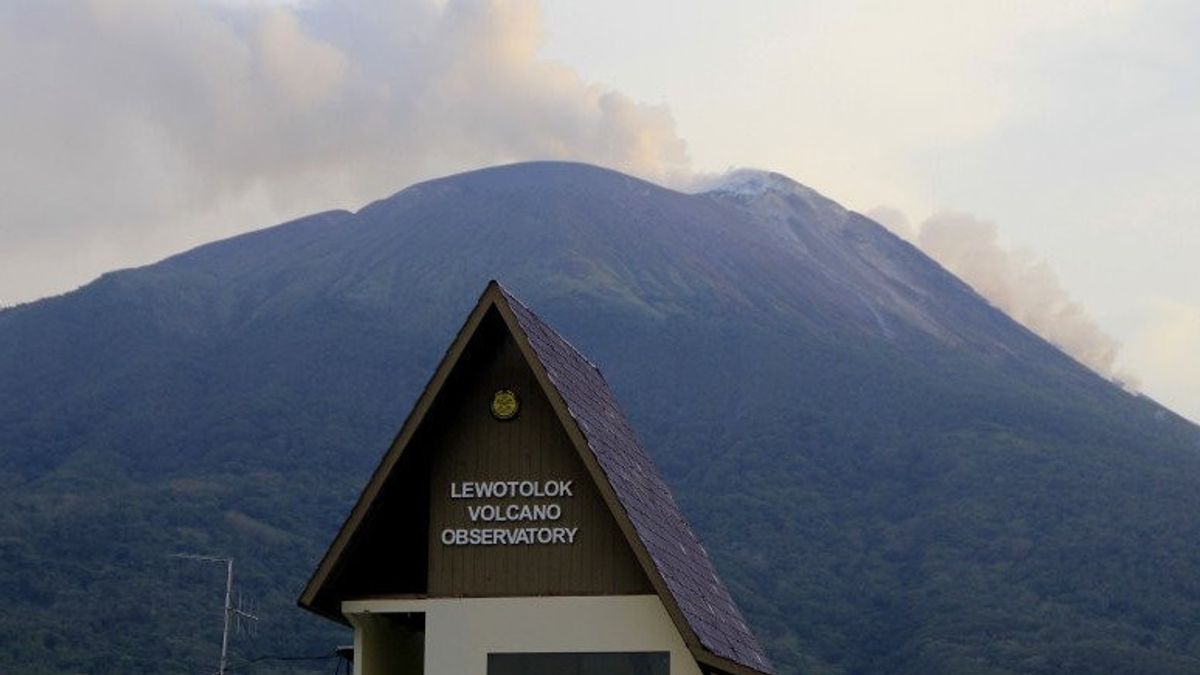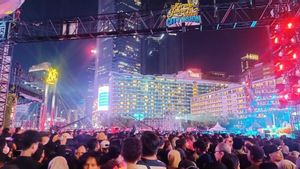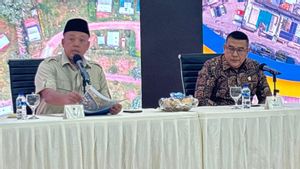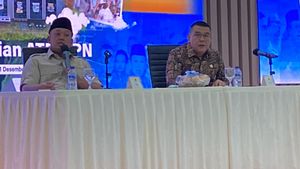JAKARTA - The Center for Volcanology and Geological Disaster Mitigation (PVMBG) stated that Ili Lewotolok Volcano in Lembata Regency, East Nusa Tenggara Province, had erupted twice on Wednesday, December 2.
Head of Mount Ili Lewotolok Monitoring Post, Stanis Ara Kian, said the eruption that occurred at 9:42 a.m. and 11:07 WITA was accompanied by a loud bang.
"The eruption was accompanied by a very loud bang, so we ask the public to always be vigilant," he said at the monitoring post, quoted by Antara, Wednesday, December 2.
According to him, the first eruption at 09.42 WITA was recorded with a seismogram with a maximum amplitude of 28 mm and lasted for approximately 22 seconds. The second eruption that occurred at 11:07 WITA was recorded on a seismogram with a maximum amplitude of 30 mm and a duration of approximately 40 seconds.
Stanis said that earthquakes and explosions were still happening in Ili Lewotolok.
"When compared with last November 30, the eruptions in the last few days were not too big and were still fluctuating, sometimes small sometimes large," he said.
Even though the intensity of the eruption and the explosion was small, he appealed to residents to remain vigilant because there is the possibility of further eruptions.
He gave an example, after the first eruption on November 27, the situation was calm, but on November 29, a large eruption accompanied by a sudden boom occurred again.
According to Stanis, currently the activity status of Mount Ili Lewotolok is at level III or Alert.
"As long as the status has not been revoked, people are asked not to do activities in areas that are within four kilometers (of the summit crater)," he said.
Increased volcanic activity of Mount Ili Lewotolok, among others, has an impact on Jontona Village. Some residents, including parents, women and children are still in the village.
The crater of the mountain can still be seen emitting thick smoke, but not the thick, thick smoke that came out during the eruption on November 29, 2020.
PVMBG advises residents around the mountain to prepare masks and equipment to protect their eyes and skin from the impact of volcanic ash.
The English, Chinese, Japanese, Arabic, and French versions are automatically generated by the AI. So there may still be inaccuracies in translating, please always see Indonesian as our main language. (system supported by DigitalSiber.id)













